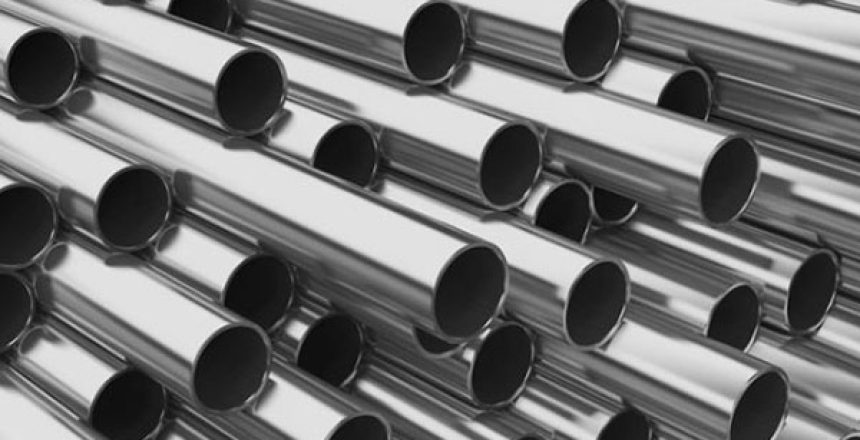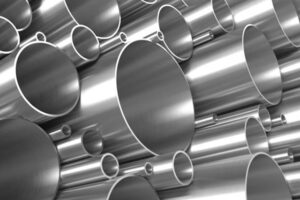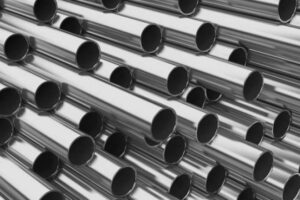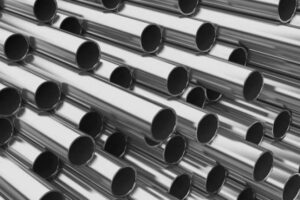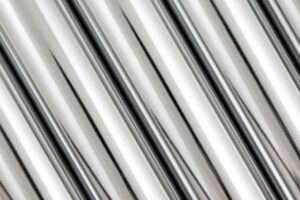Alloy 800H/800HT and its Uses
Alloy 800H & its uses, although not as well known as other 18-8 alloys like 303, 304, 316, and so forth, have gained more popularity in recent years for their ability to withstand high-temperature cleaning and sanitizing cycles. When properly surface-finished, Alloy 800H is an excellent choice for those applications where a high degree of resistance to chemicals, high temperature, and oxidizing media is required. It is also highly resistant to pitting and crevice corrosion. Alloy 800 now finds use in various automotive, sports, aerospace, and jewelry industries.
What is Alloy 800H/800HT?
Alloy 800H/800HT are nickel-chromium alloys that can resist carburization, oxidation, and corrosion at high temperatures. In short, this alloy can withstand high temperatures even when exposed to oxygen. They have the right amount of chromium, nickel, and carbon, leading to an optimal alloying process. So, if you’re in the market for an incredible alloy, Alloy 800HT is The alloy for you!
Mechanical properties
Incoloy Alloy 800HT is an extremely wear-resistant material with a significantly longer lifetime than other materials – according to tests performed by independent (3rd party) laboratories for hardness and ABR(After Breakout Endurance Testing).
This alloy is relatively resistant to carburization in the range of 300 to 800F (149 to 427C) and has exceptional resistance to oxyacetylene flame heat. The alloy has a tensile strength (annealed) of 560 Mpa/81200 psi and a perfect combination of strength and toughness, with a yield strength of 250 Mpa/36300 psi.
Alloy 800H has good weldability and is weldable by the non-ferrous filler metal (NFFM) process. The alloy is non-magnetic in the as-welded condition and can be used in applications requiring non-magnetic properties.
Thermal Properties
The special high-temperature Alloy 800HT has a thermal expansion coefficient of 14.4 m/mC or 8.00 in/inF and is therefore particularly suitable for cams with large rotations and high load cases. The micro-alloyed steel used in the surface treatment achieves a regular grain size distribution and enables good machining results by optimizing hardness levels and thermal performance.
The alloy guarantees good strength up to about 750C (1382F). It works well in various high-temperature parts and applications requiring resistance to corrosion and oxidation at temperatures up to about 750C (1382F).
Fatigue Strength
The material can be cold worked (aged) by heating to 848C followed by slow cooling. Various applications would benefit from the fatigue strength of Alloy 800HT and its age-hardening characteristics.
Alloy 800H or 800HT‘s excellent balance of strength and ductility makes it ideal for a wide range of applications such as EMI shielding and discharge electrodes. The alloy is also typically used for applications such as engine components, gears, valves, springs, and fasteners.
Creep and Rupture Properties
This material proves dependable use in applications that require a high degree of in-service performance and is useful for applications where very good mechanical, creep, and rupture properties are important. Alloy 800HT exhibits a total elongation percentage of 2-4% after one million cycles defined by ASTM E18. Creep at 900F is less than 1% per minute as defined by ASTM E 758. It is essentially resistant to creep and rupture at temperatures up to 1065F (~600C), making this family of alloys a good choice for use in industries like aerospace and nuclear energy systems.
Corrosion Resistance
Alloy 800HT is in many ways an improved version of the stainless X-800. It has the same good corrosion resistance X-800 had, but it often needs stabilization against intergranular corrosion. It has excellent corrosion resistance to most chemical corrodents, such as sulfuric acid, nitric acid, and hydrochloric acid.
Alloy 800HT is resistant to strong oxidizers at elevated temperatures and is a very good choice for applications such as metering pumps, chemical injection, or dispensing equipment.
The alloy exhibits excellent resistance to salt water, seawater, chlorine, and steam, as well as fresh water and other industrial chemicals. It’s also resistant to pitting and crevice corrosion, meaning it will last for a long time. Alloy 800HT is an alloy with a high chromium content, which keeps oxygen and certain acids from causing corrosion – it has a higher corrosion resistance than many alloys.
Oxidation
By their composition, Incoloy Alloys 800H/800HT have excellent oxidation resistance. Both alloys have a typical Fe 39%, Ni 30%, Cr 21-23%, and Cu 0.4% maximum. This provides an advantage for many applications that require oxidation resistance at elevated temperatures and in oxidizing atmospheres, such as nitric acid service, combustion of organic fluids, ethylene glycol service, hydrolysis, and oxyhydrolysis conditions, and in metals pretreatment operations used in producing aluminum parts.
Machinability
Alloy 800H/800HT are readily machined by standard methods, such as sawing, drilling, and turning on a lathe. The machine is well in all directions. They have better strength and hardness than common grades of stainless steel, such as type 304 and 310S. They are typically non-magnetic, but slight magnetic properties can be due to –> irregular inclusion from the base metal. The formation of chromium carbides near grain boundaries causes this property.
Joining
Alloy 800H/800HT have good weldability. Electric resistance welding using platinum wires is the most popular way of producing high-quality joints. Two-phase wires have a welding current that reduces the strain on the furnace structure, allows the use of low charge, and makes it possible to perform an individual profile of each stick.
Their good creep strength at temperature allows them to be used in applications where the temperature is above 450 C, such as cupro-nickel spark plugs for diesel engines and turbocharger bearings in passenger cars.
Microstructure
Titanium in 800HT is primarily an austenitic-free alloy, and it is essentially composed of titanium, carbon, and nitrogen. It contains Ti-C grains with whiskers or dendrites uniformly dispersed in the microstructure, sometimes twinned. The grain size can reach up to 100 ºm, and the total grain volume fraction is about 37%.
In high-temperature applications (above 1000F), the ferrite and austenite phases in an alloy will oxidize. When this happens, chromium carbides precipitate from the metal. The higher the chromium content of the steel, the lower the temperature at which this occurs. This means the metal can be susceptible to intergranular corrosion.
Superheater and reheater tubing,
With a melting point of 1980-1990 degrees Celsius, up to 750-degree heating can be applied at about 1480 degree gauge pressure for 15 minutes, increasing the strength of The alloy, allowing it to endure high temperatures and sulfur compounds—an excellent material for superheater and reheater tubing.
It provides a combination of excellent strength and high creep resistance at high temperatures. Superheater tubing with titanium Alloy 800HT is typically used in steam flow temperatures from 1500 to 1800 F, at 600 psi to 700 psi pressure.
Heating element sheathing
The high-temperature alloys are used in electrical resistance heating element sheathing. It has an improved coefficient of thermal expansion and wear resistance. Its typical application is to slightly increase the electrical resistance of a heating element while the sheath retains an increased service life.
Typically, a wire is drawn into a tube, the tube is heated, and then it is placed in another tube that acts as a mandrel to shape the tube around it and makes sure the wire stays at the center. It has sufficient ductility and toughness at elevated temperatures for service in resistance and induction heating elements and conductors.
Quenching-system piping
alloy with high-temperature corrosion resistance is required on the vacuum shafts and drainage lines in the tempering furnaces and the vacuum pump system piping. Alloy 800HT could be used in high-frequency fluorescent light tubes to provide high-performance, low-cost, and long-life components of the bulb structure and prevent phosphor degradation.
Using Alloy 800HT in a conventional quenching system, you can increase your heat-treating capacity by 50% or more. The major reason for using this alloy is to extend the critical temperature range of the quenching media itself, thus allowing higher hardness levels to be achieved and higher strength levels to be maintained over longer periods.
Marine applications
This alloy is very strong even at high temperatures, making it a great material for marine engine parts, exhaust systems, and heat exchangers. The high amount of chromium in the steel gives it solid corrosion resistance, especially for a ship or boat with extremely humid and salty conditions. The nickel keeps the steel strong and resistant to shock, highlighted by its ability to withstand high temperatures. The carbon of nickel makes the steel more durable and increases its resistance.
Oil and gas exploration
Alloy 800HT is an age-hardenable nickel-iron-chromium-copper alloy known for its strength at high temperatures. Alloy 800HT is used for drilling pipes and tubes in oil and gas exploration offshore applications. The Alloy 800HT is mainly used as a liner in oil and gas exploration, which can be applied to the wells’ inner and outer walls. It has excellent corrosion resistance, and you don’t need to pay extra cost for its high-temperature resistance. Liners made of Alloy 800HT are the preferred selection of well construction companies.
In a nutshell
Alloy 800H/800HT are high-strength, high-temperature alloys used to replace the popular Alloy 600 series. They have a wide range of uses in many industries, including aerospace, petrochemical, chemical processing, and more. Their high strength allows them to be used in situations that would be unsafe for other alloys.

